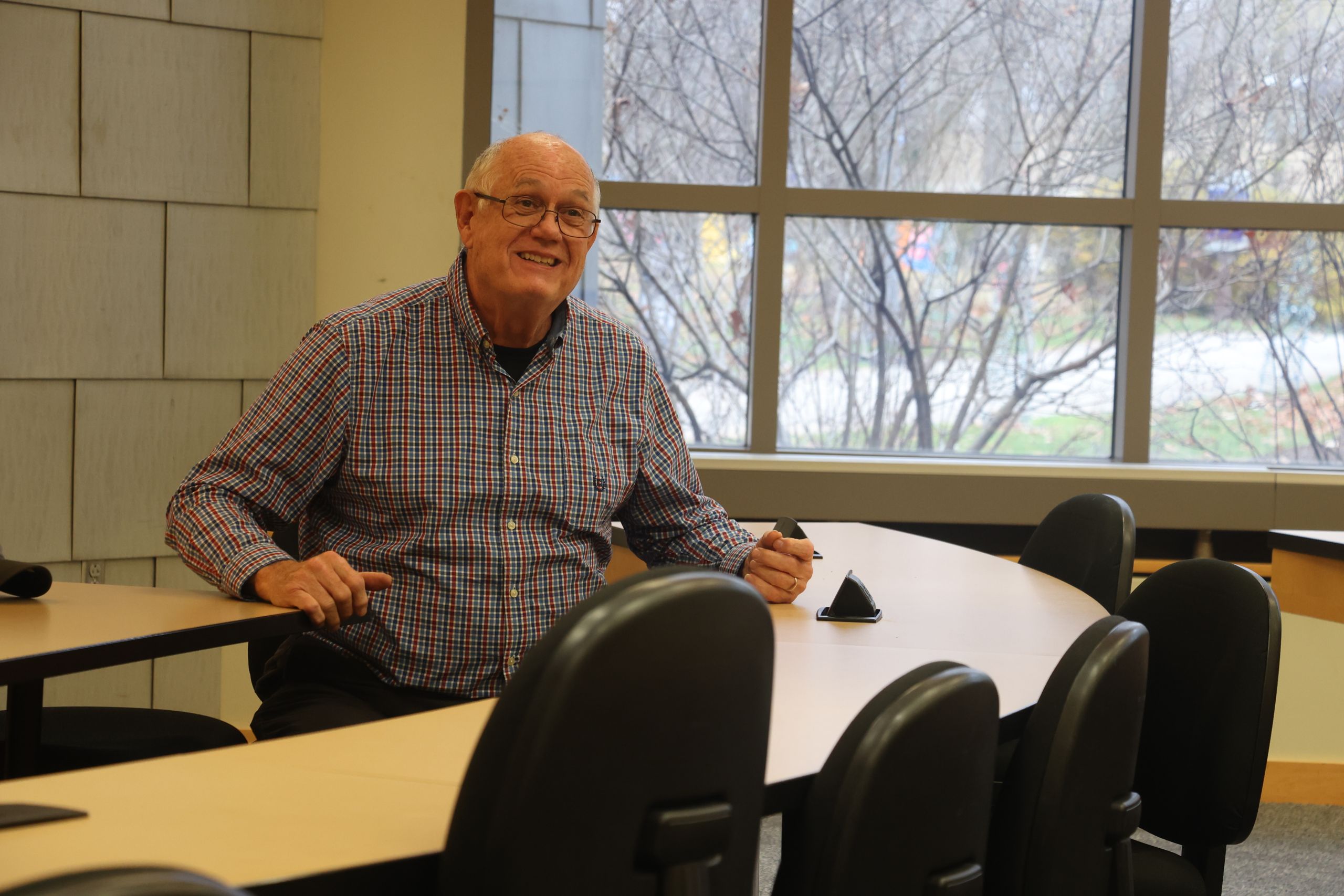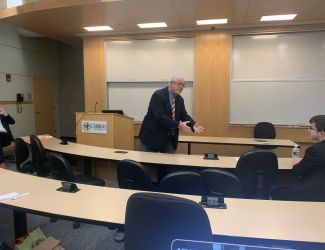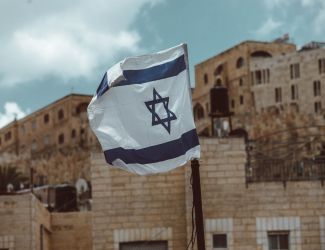In honor of Native American Heritage month, Dr. Jim Hedtke, professor of history and political science, gave a lecture on Ely Parker November 28th, 2023, in the Iadarola lecture hall. Parker was a Tonowanda Seneca man who played a pivotal role in American history, yet whose story remains largely unknown.
The lecture was sponsored by the Wolfington Center, and Cabrini’s Office of Diversity, Equity, Inclusion, and Belonging.
What is a land acknowledgment?
Before Hedtke began, ODEIB Director Lailah Dunbar offered opening words and a land acknowledgement.
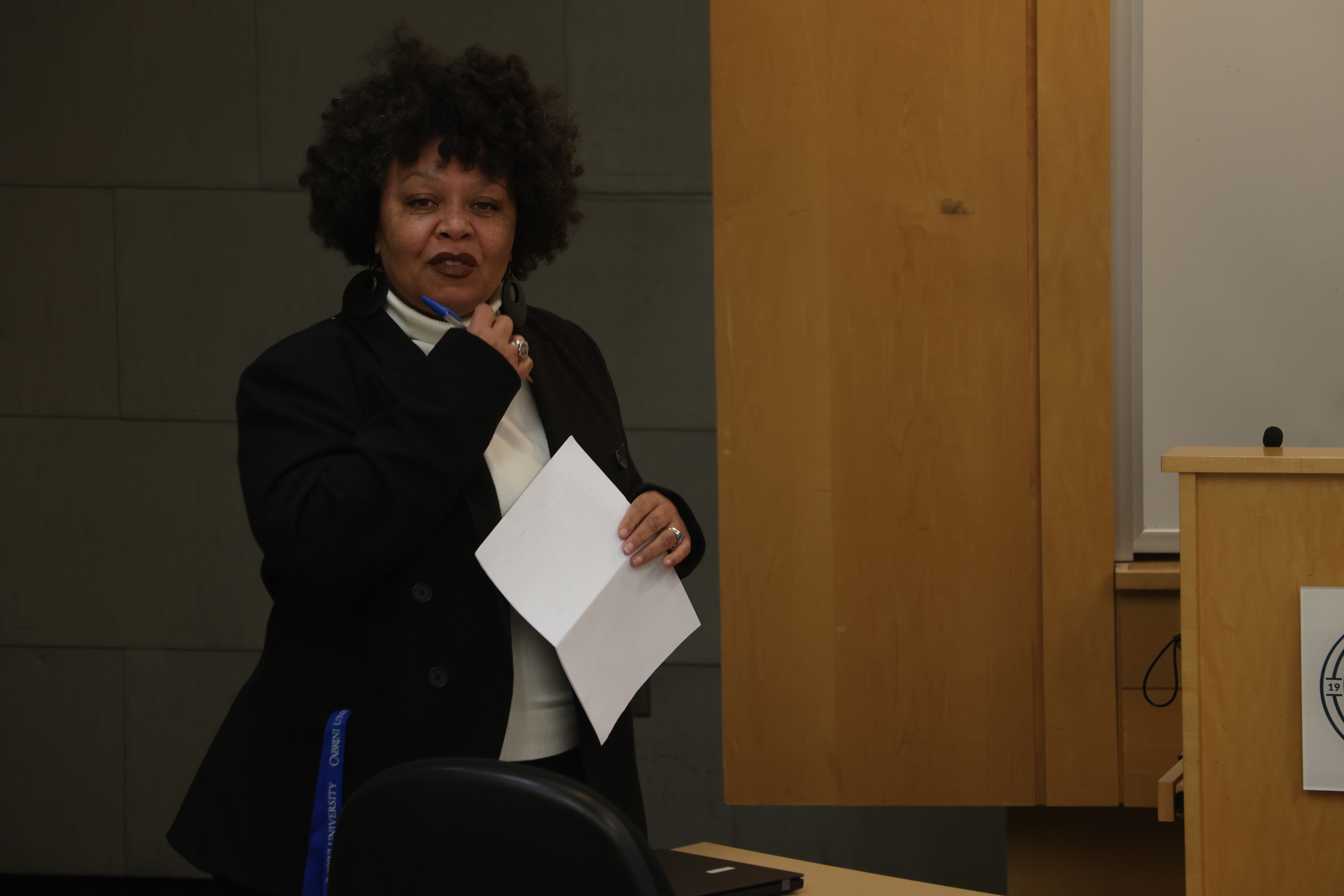
“A land acknowledgment is a way of acknowledging the land of Native American people. The land that we occupy is stolen land,” Dunbar said.
Dunbar explained to the audience that all local Philadelphia lands that were once occupied by Native Americans. Names such as Shawnee, Conestoga, Wissahickon, and Manayunk are all Philadelphia areas with indigenous names.
Wolfington Center Director Dr. Raymond Ward said, “For being a social justice school, attention to Native American history, and peoples is not the most developed aspect of our concerns on campus. I think we more or less have neglected that in some of our university’s work.”
Ward said land acknowledgments are a common practice amongst universities in this country, and Cabrini was behind the curve in terms of adopting this practice. In many colleges, land acknowledgments are read before lectures. Ward also said he has been working with ODEIB for years to have land acknowledgments adopted into Cabrini policy.
Aside from the land acknowledgement, and Hedtke’s lecture on Parker, students were treated to a traditional Native American dish called Three Sisters Soup. The meal is typically made of corn, beans, and squash, three vegetables planted together to enhance the growth of each.
The Student Engagement and Leadership Office, in conjunction with ODEIB, also hosted an additional event. A trivia contest about Native American innovations and inventions was held in the Grill from 12-2 p.m. There was also a prize raffle sponsored by SEEDS, an indigenous arts and culture organization.
The life of Ely Parker
In Hedtke’s lecture, he paints the picture of Parker as a man who rose from humble beginnings, to one of the most prominent figures in American history. Parker studied at an Iroquois woodworking school in Ontario, Canada, and on a return trip home to his native New York, he was made fun of by British and American officers for his poor English.
“This event led Parker not only to improve his English, but to become an orator of the English language,” Hedkte said.
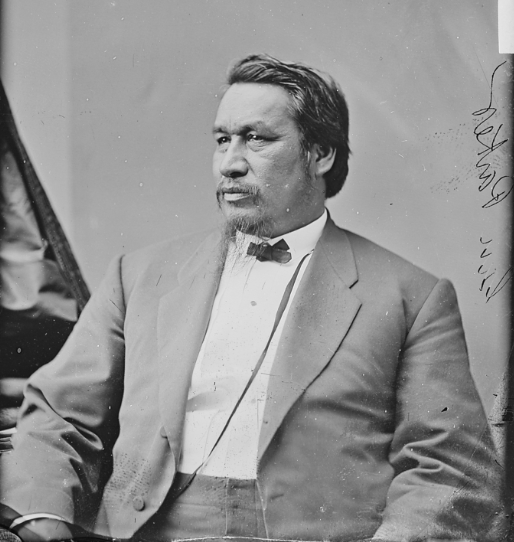
In 1856, Parker became the head engineer for the Chesapeake Ship Canal, and forged relationships with future U.S. President Ulysses S. Grant, as well as future Union Army generals John Rawlins and John Smith.
When the Civil War began, Parker voiced support for the Union Army, and advocated for Native American involvement in the war.
Despite initially being denied due by the army due to his Native American heritage, Smith secured Parker a position in Grant’s cabinet. Parker joined the Army of the Tennessee as a captain, and led his men to victory in the Battle of Chattanooga. Parker rose to a key position under Grant in Washington D.C., and participated in battles for control of Virginia.
When General Robert E. Lee of the Confederate army and General Grant of the Union army met to sign documents to signal the end of the war, Grant called on Parker to draft the document. The articles of surrender were penned by Parker, and signed by both generals, ending the Civil War.
“Parker was a man who fought for the rights of all people, including Americans, but died without becoming an American citizen,” Hedtke said.


